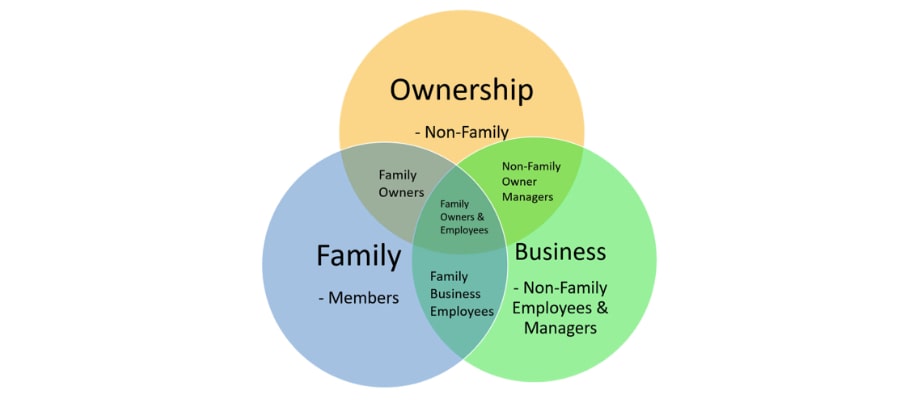
Libfeld v. Libfeld
If ever there were a cautionary tale in recent times, we can look to the recent Libfeld v. Libfeld case (Libfeld v. Libfeld, 2021 ONSC 4670 (CanLII)). The Patriarch of the family, Teddy Libfeld built a well-known empire, The Conservatory Group. The myriad of companies that formed the group is in the real estate development and building business. Mr. Libfeld passed away in 2000 leaving the organization to his wife and children with little planning despite his four sons having worked in the business. Where has that led the boys? To the courts to try and settle their dispute over the ownership and management of the business.
The brothers have been at odds for many years because their father never defined each of their roles. Some get along and some do not. Furthermore, their loyalties have shifted over the years. When the case was initiated, it was one brother against three but by the time the court rendered a decision, there were two brothers on each side.
What was the result of the case?
The court has ordered a sale of the group, estimated to be worth between $2.5 and $4 Billion. Think about this, a lack of planning and structure has led to the break up of a massive company and if any of the brothers want to buy out the others, the only way they can do it is with the help of a court appointed agent.
Would it have been better to keep the business together?
Of course it would have. Just imagine the annual income of a business with that sort of valuation and all of that wealth remaining within the family. And now that a court-appointed agent is selling the company, outside bidders can swoop in and possibly scoop up this valuable organization. While the brothers will be paid out should this happen, imagine all the time, money and energy lost to lawyers, court cases, and now a court-appointed “officer” to analyze the books of the company and organize a sale.
What is a succession plan?
To understand this we have to understand some of the context of what makes a family business. There are three components to every family business:
- The family
- The operation of the business
- The ownership in that business
The three are interlinked and members of the family can just be members of the family or be a part of the one or both of the other components. Typically, the mom and dad sit at the centre, owning and running the business and leading the family. Their goal should be, and usually is for their kids to take over the business. But it takes evaluation and planning to determine which kids should do what. Some kids may love to own a piece of the business but do not want to participate in it. It is also important to make sure that the kids are doing jobs that suit their talents and goals.
All of this goes into the succession planning process. At the end of the day it’s about getting the business into the hands of the next generation as easily as possible with as little tax as possible. But beyond that it is about setting the business up to thrive while maintaining a happy family dynamic. It is no surprise that only about 30% of businesses survive into the second generation.
What do you need to do as a business owner need to do?
Think strategically. Determine who in the family should be doing what. Examine whether finding an outside buyer is a better strategy. Don’t ignore family rules, charity and other personal priorities in determining the strategy. Communicate with the whole family. If you don’t tell your kids your wishes, they won’t know what they are. Developing the plan should be collaborative. This is your children’s lives when you are gone. They should know what to expect and all be on board. As you gain agreement, put everything in writing and create a set of rules. For example, perhaps there are certain family events in which they must participate to “earn” their share of the profits. Maybe they have to work somewhere else for a defined period before they can work in the family business. These are just a couple of considerations. And the plan should have five steps with the last four cycling over the years: Introduction, Assessment, Alignment, Implementation and Maintenance.
The bottom line is that without succession planning, the family will never survive. The Libfelds are lucky in that their organization is large enough that it could fund this court battle and still come out the other end with billions of dollars. But a smaller business would be crippled and destroyed by a similar battle. Hummingbird Lawyers LLP is here to help walk you through the process and help ensure that the next generation is at least as successful as you. We are not the only people that you will need on your team. While we understand the process and the necessary legal documents, your accountant, financial advisor, insurance advisor and talent evaluation experts will need to be involved. But the first step is to start the conversation. Hummingbird Lawyers LLP has an experienced business lawyers and wills & estates lawyers that can help you with succession planning and help your family thrive.
For questions about succession planning, please contact us by filling out the form at the bottom of the page or call us (905) 731-1911.
- Related Articles:
- How Does Coronavirus Effect My Family Business Enterprise?
- Family Enterprise
- Business Succession Emergency Continuity Plan
- Tax Law



